Our Approach
ABOUT MSD
Graduating Life-Ready Global Citizens since 1964
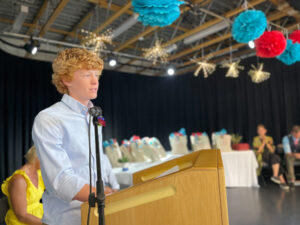 MSD graduates are skilled, responsible, adaptive world citizens who are curious solution solvers, and we take pride in being a dynamic learning community. Global education is a driving focus, as is preparing our students for the fast-approaching Fourth Industrial Revolution. Today, students encounter a rapidly changing world, full of new ideas, new skill requirements and new technology. We diligently evaluate our curriculum to reflect changes in our community and in our world, with an emphasis on relevant academic subjects, innovation, collaboration, and team-building skills. We strive to equip our students with the necessary tools for meaningful contribution and participation, critical thinking and problem-solving skills, collaboration and leadership amongst peers, aptitude and adaptability, initiative and entrepreneurism, effective oral and written communications, accessing and analyzing information, and creativity and innovation.
MSD graduates are skilled, responsible, adaptive world citizens who are curious solution solvers, and we take pride in being a dynamic learning community. Global education is a driving focus, as is preparing our students for the fast-approaching Fourth Industrial Revolution. Today, students encounter a rapidly changing world, full of new ideas, new skill requirements and new technology. We diligently evaluate our curriculum to reflect changes in our community and in our world, with an emphasis on relevant academic subjects, innovation, collaboration, and team-building skills. We strive to equip our students with the necessary tools for meaningful contribution and participation, critical thinking and problem-solving skills, collaboration and leadership amongst peers, aptitude and adaptability, initiative and entrepreneurism, effective oral and written communications, accessing and analyzing information, and creativity and innovation.
At MSD, we believe in the education of the whole child, guiding all intellectual, physical, emotional, ethical, and moral needs. We enable our students to discover a love of learning, and place emphasis on the learning process. At each of our five program levels, we emphasize application and acquisition of knowledge and help students utilize their unique learning style(s).
We encourage students to be thoughtful, kind, compassionate, and civic-minded members of our society and greater community. We strive to equip students with the tools necessary to contribute and participate meaningfully in the world, including a focus on learning through local, national, and global community service, and an active celebration of the diverse world around us, including our tradition of “Doing Good” woven into our school culture. Our teachers deliver the curriculum in a dynamic and engaging manner and our students benefit from current research on how to best teach, allowing them to reach their full potential. MSD provides an exciting, well-rounded education that challenges each child’s curiosity and rewards creativity.
Math
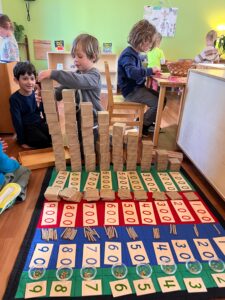 Dr. Montessori created her math curriculum based on Pascal’s theories. Both believed in the concept of a “mathematical mind.” Pascal believed the term applied to adults, and Montessori believed it also applied to children. The mathematical mind tends to estimate, quantify, see identity, similarity, difference, and patterns, create order and sequence, and control error. The Math program is mindfully organized to be progressive and successive.
Dr. Montessori created her math curriculum based on Pascal’s theories. Both believed in the concept of a “mathematical mind.” Pascal believed the term applied to adults, and Montessori believed it also applied to children. The mathematical mind tends to estimate, quantify, see identity, similarity, difference, and patterns, create order and sequence, and control error. The Math program is mindfully organized to be progressive and successive.
In Toddler and Primary, sensorial materials aim to refine senses, stimulate cognitive development, establish order, and discover learning differences. By isolating particular qualities, sensorial materials facilitate the goal of refinement. These materials are presented to engage children with hands-on lessons, using concrete manipulative materials with a control of error, allowing them to become auto-didactic learners. The sensorial materials provide the basis for mathematical concepts into elementary years.
In Lower and Upper Elementary, students continue working with concrete, tactile materials and progress into abstract processes and computations. This progression allows the child to develop a deep understanding of mathematical concepts, rooted in sense, touching and manipulating of materials. This forms a basis for abstract thought about quantity, symbol, and the four basic operations. These concepts are solidified by using materials, as well as graphing, fractions, telling time, counting money, and memorization of math facts.
As students progress into Middle School, they experience more in-depth discovery of math concepts through project-based learning and collaborative work that is often based on the student’s individual interests and needs. Student mastery is determined through a combination of assessment, project work, self-correction, and teacher observation. Some Montessori materials reinforce mathematical concepts and provide a familiar tool if students desire refresher lessons, but most students are ready for entirely abstract work.
Science
Have you ever wondered what makes science in a Montessori classroom so unique? As a scientist herself, Dr. Maria Montessori strongly believed in helping children build an understanding of the natural world from a very young age. The Montessori cultural-science philosophy is a whole-to-parts model of understanding the world. Using the power of story, compelling materials, and accurate terminology for science terms, children of all ages are introduced to and given the opportunity to explore the wonders of the universe. This process of untangling and breaking into parts provides students an approachable lens for the often abstract concepts of science and a greater appreciation for the natural world. Science plays a pivotal role in helping students improve their skills of observation and perception. Awe, awareness, knowledge, and experimentation are key aspects of a student’s science journey in the Montessori classroom.
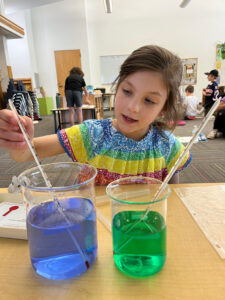 Science at MSD’s Toddler and Primary levels is incorporated into the environment, allowing students to experience the world at large. For example, when working in size-appropriate garden beds, Toddlers plant seeds, water, and observe the plant life-cycle in real time, followed by harvest, food prep, and eating. Students experience the scientific world through daily discussions and books. Science activities encourage learning through exposure and provide real, hands-on experiences. Lessons include physical science, Earth science, and life science with nomenclature, classification, and experimental works, aimed to further their knowledge of the sciences. Kindergarten students use the scientific method and further their experience during MSD’s Kindergarten Kaboom where Kindergarteners present their knowledge with a demonstration of their experiments.
Science at MSD’s Toddler and Primary levels is incorporated into the environment, allowing students to experience the world at large. For example, when working in size-appropriate garden beds, Toddlers plant seeds, water, and observe the plant life-cycle in real time, followed by harvest, food prep, and eating. Students experience the scientific world through daily discussions and books. Science activities encourage learning through exposure and provide real, hands-on experiences. Lessons include physical science, Earth science, and life science with nomenclature, classification, and experimental works, aimed to further their knowledge of the sciences. Kindergarten students use the scientific method and further their experience during MSD’s Kindergarten Kaboom where Kindergarteners present their knowledge with a demonstration of their experiments.
At the Elementary level, the Montessori Five Great Lessons are presented to the students each year, presenting a “cosmic” view of the world. These lessons fuel the students’ curiosity and imagination and introduce the basic principles of astronomy, chemistry, physics, botany, and zoology. Follow-up lessons and works on the shelves support further independent exploration. Students continue to practice critical thinking and problem solving within the framework of the scientific method and physical experiments. The Science work in the Elementary classroom culminates in the child independently seeking knowledge which is of interest to them, using their ability to research, organize, and share their learning with their peers. Additionally, a rotation of the sciences is taught on a three-year cycle (Lower Elementary) and a two-year cycle (Upper Elementary), which includes astronomy, earth, life, and physical sciences. In Upper Elementary, students work on science projects and presentations to demonstrate understanding of each unit of study.
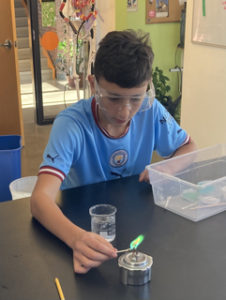 In Middle School, science is taught over a three-year cycle including Earth, life, and physical science lessons in MSD’s dedicated Science Tower. Experimentation and construction are at the forefront of every lesson, allowing students to creatively explore their own theories. Tests and quizzes are implemented on a regular basis to track retention. The goal is to prepare them for success in high school and also to spark their creative minds.
In Middle School, science is taught over a three-year cycle including Earth, life, and physical science lessons in MSD’s dedicated Science Tower. Experimentation and construction are at the forefront of every lesson, allowing students to creatively explore their own theories. Tests and quizzes are implemented on a regular basis to track retention. The goal is to prepare them for success in high school and also to spark their creative minds.
This year’s Science Night is a new take on the Science Expo, with the intention to broaden the reach to our younger students. Upper Elementary students will be sharing their learning of simple machines while Middle School students have explored, researched, and tested a hypothesis of their own choosing, following the process of the scientific method. Their projects will be sure to teach, inspire, and spark curiosity for all our Science Night visitors.
English & Language Arts
Teachers implement the documented language curriculum with an individualized approach, ensuring that each student’s unique needs are met by planning lessons based primarily on ability level, rather than age or grade level. Language curriculum includes oral and auditory skills, phonics, word study and etymology, decoding, fluency, comprehension, writing mechanics, genres and types of literature, grammar, spelling, editing, and publishing, and practice with various forms of writing. The Orton-Gillingham approach to literacy is folded into the existing Montessori language curriculum and is applied from Primary through Upper Elementary. Literacy support is provided to students based on benchmark assessment scores, the Dynamic Indicator of Basic Literacy Skills (DIBELS), as well as teacher observations of their abilities in class, diagnosed reading disabilities, and other recommendations. Language is integrated across the curriculum, including specials.
The Toddler environment is designed to maximize experiences that promote language development. The toddler child is in the midst of a sensitive period for language, so it is the teacher’s role to make sure the classroom environment is a rich language environment, focusing heavily on oral language through song, storytelling, and daily interactions. Teachers use accurate vocabulary to promote comprehension, which is the main goal. Materials which support language development include books, poetry or nursery rhymes, real objects within the room, and language (picture) cards (object to object, object to picture, and picture to picture), replicas, and name cards for name recognition.
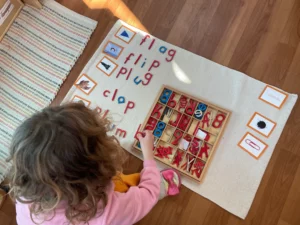 Primary classroom begins with oral language and pre-reading materials, including visual discrimination through various works. Three-part cards identify similarities and differences between animals, shapes, and other terms. Students practice syllable counting, phonemic segmentation, and identification of beginning, middle and ending sounds. All phonemic awareness begins with auditory recognition without a written component and is reinforced with letter sound, a keyword with initial letter sound, and letter name. Students use the moveable alphabet to build words corresponding with pictures in Waseca word towers, ultimately allowing students to read word cards and match them to their pictures. Starting at 3 years, students start gaining confidence giving oral group presentations through news period and other line-time activities.
Primary classroom begins with oral language and pre-reading materials, including visual discrimination through various works. Three-part cards identify similarities and differences between animals, shapes, and other terms. Students practice syllable counting, phonemic segmentation, and identification of beginning, middle and ending sounds. All phonemic awareness begins with auditory recognition without a written component and is reinforced with letter sound, a keyword with initial letter sound, and letter name. Students use the moveable alphabet to build words corresponding with pictures in Waseca word towers, ultimately allowing students to read word cards and match them to their pictures. Starting at 3 years, students start gaining confidence giving oral group presentations through news period and other line-time activities.
Handwriting preparation begins in the practical life area of the classroom, where students practice and strengthen their fine motor skills with pin-punching activities for pincer grasp and fine motor development. The metal inset materials introduce formation of shapes using counterclockwise motions and writing vertical and horizontal lines within those shapes. Students use sandpaper letters for letter formation and letter recognition. They are shown how to anchor letters on a baseline and to space between words in sentences. Sentence writing is practiced through copywriting exercises and dictation.
The Lower Elementary language program is integrated across the curriculum and is designed to help students develop strong reading, writing, listening, and speaking skills so they can become effective communicators who think critically and solve problems creatively. Every week, teachers give large and small group lessons in writing, reading, grammar, and spelling. They also give individual and small group lessons on an ongoing basis using multisensory Montessori materials that focus on topics, such as letter formation, phonics and spelling rules, writing conventions, word study, parts of speech, and syntax. Students then work with these materials independently until they have demonstrated readiness for a new lesson. Other language curriculum strains include reading fluency and comprehension, handwriting, composition, and oral presentation.
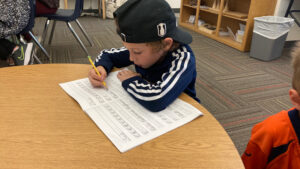 Language skill building is critical at the Upper Elementary level; students are challenged to identify, understand, comprehend, demonstrate, and explain a wide range of information and asked to express their own thoughts clearly, creatively and logically. Students are exposed to various genres. Writing instruction focuses on the function of words, correct syntax, and sentence structure. Creative writing and expression are explored through short stories and poetry, as are other forms of writing, such as narrative and research. Students are taught narrative structure, including setting, plot, character development, and devices, such as foreshadowing and metaphor. Literature groups meet weekly, guided by teachers with a focus on oral fluency, critical thinking, decoding, and comprehension. Many students choose to read their finished writing to the class or to publish it on a classroom shelf. Students begin to read for information and deeper comprehension. Writing becomes a primary vehicle for the student’s demonstration of knowledge, and they learn effective note taking, outlining, and research presentations.
Language skill building is critical at the Upper Elementary level; students are challenged to identify, understand, comprehend, demonstrate, and explain a wide range of information and asked to express their own thoughts clearly, creatively and logically. Students are exposed to various genres. Writing instruction focuses on the function of words, correct syntax, and sentence structure. Creative writing and expression are explored through short stories and poetry, as are other forms of writing, such as narrative and research. Students are taught narrative structure, including setting, plot, character development, and devices, such as foreshadowing and metaphor. Literature groups meet weekly, guided by teachers with a focus on oral fluency, critical thinking, decoding, and comprehension. Many students choose to read their finished writing to the class or to publish it on a classroom shelf. Students begin to read for information and deeper comprehension. Writing becomes a primary vehicle for the student’s demonstration of knowledge, and they learn effective note taking, outlining, and research presentations.
As students enter Middle School, they gain more competence to think critically and abstractly. The English language arts curriculum aims to empower students to shape their own perceptions, articulate their observations and experiences, and fosters critical thinking skills and creative expression. Students analyze the actions, words, and emotions of characters in fiction and non-fiction works. Literature groups encourage students to follow their interests by offering multiple options for students to select the book and choose which project to complete and share. Students structure their essays in a logical, organized, and concise manner through planning, editing, and revising via self-editing and peer-editing. Students are exposed to the power of rhetoric to persuade readers. New vocabulary enables students to integrate more precise diction into their writing while grammar lessons support proper syntax and language fluency. While the writing curriculum focuses on effective communication and language usage, it also integrates reflective writing to build self-awareness. Students have many opportunities to present to an audience and develop confidence, annunciation, speaking pace memorization, and oral reading fluency. Audience members practice active listening and speaker engagement.
History & Geography
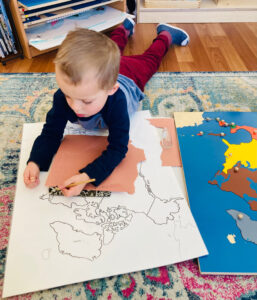 Cultural items are incorporated into the Toddler environment so they are provided with real, hands-on experiences with various textures, sights (for example, photographs of real people, places and objects), smells, tastes, and music from around the world.
Cultural items are incorporated into the Toddler environment so they are provided with real, hands-on experiences with various textures, sights (for example, photographs of real people, places and objects), smells, tastes, and music from around the world.
At the Primary level, children participate in the school-wide continent study, which is organized on a three-year rotation cycle. This in-depth exploration of countries includes culture, customs, animals, clothing, housing, food, geography, and holidays. Map making helps students understand the world around them by taking an in-depth study of states, countries, and continents while also learning about land and water forms that are integral in our study and understanding of the world around us.
The Cultural curriculum in Lower Elementary is meant to anchor the child to their world, deepen a growing awareness of his or her role in the world, prepare the student to become a thoughtful steward of community and planet, and develop critical thinking, analytical reasoning, and problem-solving skills. In the Lower Elementary program, the children participate in a semester-long focus of each continent throughout a three-year cycle. Map making in Lower and Upper Elementary expands beyond continents and countries to include capital cities, land and water forms, currents, migrations, and more. In Upper Elementary, students study humans past and present, the history and development of civilizations, social sciences, humanities, physical geography, and civics in order to make connections to issues that affect them both locally and globally. Students also study Colorado history (fourth grade) and U.S. history (fifth grade).
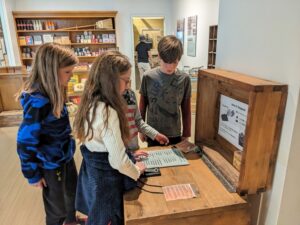 In Middle School, the study of culture, geography, and history is based on Colorado state standards and is presented on a three-year cycle that includes a robust two-year world history study and a yearlong look at American history from indigenous studies through the American Civil War. The academic curriculum is also supplemented by a variety of concentration and elective courses that dive into cultural topics, such as civics, human rights, world languages, world mythology, and music. Geography studies are incorporated throughout the curriculum through maps, charts, and data to further analyze and understand the political, cultural, and physical geography of the world.
In Middle School, the study of culture, geography, and history is based on Colorado state standards and is presented on a three-year cycle that includes a robust two-year world history study and a yearlong look at American history from indigenous studies through the American Civil War. The academic curriculum is also supplemented by a variety of concentration and elective courses that dive into cultural topics, such as civics, human rights, world languages, world mythology, and music. Geography studies are incorporated throughout the curriculum through maps, charts, and data to further analyze and understand the political, cultural, and physical geography of the world.
Spanish
Learning a foreign language enhances the human experience, expands our cultural horizons, and fosters meaningful connections. MSD offers a comprehensive Spanish curriculum that incorporates the Montessori philosophy and aligns with national proficiency standards. Spanish lessons are designed and presented according to the child’s cognitive and linguistic readiness. The Spanish curriculum comprises comprehension skills, oral language skills, listening and writing skills, and activities that nurture cultural awareness and respect. The curriculum includes celebrations of Hispanic holidays and culture, such as Día de los Muertos and Cinco de Mayo. Students engage in these celebrations through videos, books, crafts, music, and dancing. Each spring, the Spanish department hosts an event in celebration of Hispanic culture. Students prepare presentations, create performances and dance to Latin music, and collaborate on cultural art projects. These projects and performances are shared with the entire community at the Cultural Festival.
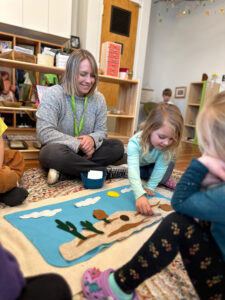
Toddler, Primary, and Kindergarten students learn language through topic-based and interactive activities that target language comprehension. Critical and analytical thinking at these levels are supplemented by the use of hands-on materials that are inspired by the Montessori works available in their own classrooms. All Toddler and Primary students receive 20 minutes of in-class Spanish instruction each week. Kindergarten students receive one week of Spanish classes (60 minutes each) in a four-week rotation.
In Lower Elementary, students are introduced to a higher linguistic level of Spanish through a more structured language curriculum. Lessons at this level target the development of their listening, reading, writing, and speaking skills. Hands-on materials are still present and the Montessori grammar symbols are consistently used in the composition of basic phrases. Classes are introduced to simple storytelling through Teaching Proficiency through Reading and Storytelling (TPRS) methods. Lower Elementary students receive a week of 60-minute Spanish classes on a rotating basis.
In Upper Elementary and Middle School, Spanish classes become more interactive and conversational. Teamwork and collaboration are valuable ways to learn Spanish at these levels. Students are guided toward a more independent language acquisition. The use of technology is included in the completion of individual writing and listening activities. Upper Elementary students focus on the development of vocabulary; middle school students focus on its application.
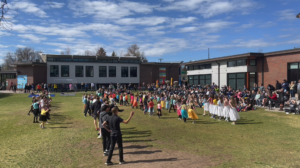
Each week, Upper Elementary and Middle School students receive an hour of Spanish lessons. In addition to regular classes, Middle School students may elect to take “conversational Spanish” to deepen their linguistic skills. This elective class offers students an additional 1 hour of Spanish per week. This class not only reinforces the use of Spanish, but the small class size creates a safe space for students to strengthen their confidence. In this small class setting, students are able to go on field trips to local businesses and Mexican restaurants where they apply what they have learned in this class.
Technology
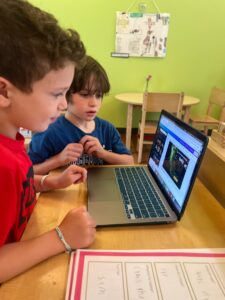 In the Primary programs, each classroom has an iPad and laptop computer which is used in a developmentally appropriate manner. Students utilize technology as a curriculum enhancement, such as watching relevant educational videos or typing up labels for continent maps. At the Lower Elementary level, students’ use of technology becomes more involved. Students learn keyboarding starting in third grade and also begin working through The Common Sense Media curriculum to learn responsible digital citizenship. Lessons on media literacy, website safety, and website trustworthiness are given in library class and reinforced at each grade level. In Upper Elementary, each student is assigned their own laptop and email address, and students and their parents sign a technology use agreement at the start of each school year.
In the Primary programs, each classroom has an iPad and laptop computer which is used in a developmentally appropriate manner. Students utilize technology as a curriculum enhancement, such as watching relevant educational videos or typing up labels for continent maps. At the Lower Elementary level, students’ use of technology becomes more involved. Students learn keyboarding starting in third grade and also begin working through The Common Sense Media curriculum to learn responsible digital citizenship. Lessons on media literacy, website safety, and website trustworthiness are given in library class and reinforced at each grade level. In Upper Elementary, each student is assigned their own laptop and email address, and students and their parents sign a technology use agreement at the start of each school year.
Technology has a meaningful, integrated presence in everyday classroom activities in Middle School. After signing a technology use agreement, students are assigned laptops and email addresses. Teachers and students utilize the Microsoft Office 365 suite and Schoology to create, store, track, and distribute assignments. Students and teachers use Apple TVs to broadcast their work/lessons and use other online educational sites, like Khan Academy, to provide extra curriculum support. Additionally, there are electives that students can take with a technology focus, such as videography, stop motion, robotics, and newsletter.
Cameras and editing software like iMovie and GarageBand are available for students to get creative with their electives and classroom projects. Student cell phones are turned in each morning at arrival and returned at the afternoon carline and are not allowed during the day unless they have parent or teacher permission. Upper Elementary and Middle School students begin to learn how to run the sound and light board for plays and other performances, as part of tech crew.
Every staff member has computer access, and all teachers are assigned a laptop for professional use. MSD utilizes Microsoft Office 365 for streamlined collaboration and communication. Elementary through Middle School teachers use Promethean Boards and Apple TVs in the classroom to support lessons and facilitate student presentations. Teachers utilize Transparent Classroom to track student progress, enter observations, record lessons, send classroom updates, upload and share photos of students, and create and send progress reports. MSD’s website is an interactive and intuitive experience for prospective and current parents.
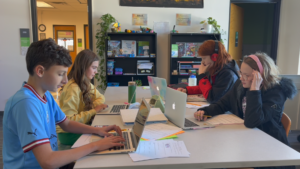 With the onset of the COVID-19 pandemic, all lead faculty members and several staff were provided Zoom accounts to host events, meetings, and remote instruction. We launched MSD’s Virtual Campus, a private social network hosted by the Mighty Networks platform, to enable all MSD community members to stay connected with each other and access remote learning resources from the comfort and safety of home. We have maintained many resources ever since returning to on-campus learning. In many ways, MSD has used technology to adapt to changing environments and increase community engagement by allowing events to be held virtually when needed and/or appropriate.
With the onset of the COVID-19 pandemic, all lead faculty members and several staff were provided Zoom accounts to host events, meetings, and remote instruction. We launched MSD’s Virtual Campus, a private social network hosted by the Mighty Networks platform, to enable all MSD community members to stay connected with each other and access remote learning resources from the comfort and safety of home. We have maintained many resources ever since returning to on-campus learning. In many ways, MSD has used technology to adapt to changing environments and increase community engagement by allowing events to be held virtually when needed and/or appropriate.
Urban Farm
MSD strives to prepare students to be good local and global citizens, environmental stewards, and to help create a more sustainable world. Our curriculum addresses the knowledge and skills needed to foster environmental literacy, social competency, and econmic responsibility. We have integrated sustainable operations such as a school-wide composting and have raised student awareness of waste reduction by holding school-wide trash sorting events.
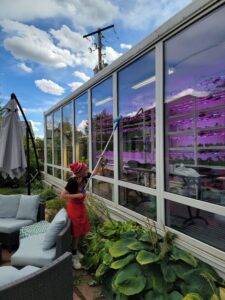
The Urban Farm program is incorporated into all program levels and allows students to experience connection with nature and the magic of growing food. By teaching children about growing and eating local food, we are preparing them to be environmental stewards of the future. The Urban Farm features seven outdoor soil raised beds, two hydroponic tower gardens, numerous planters, and the vertical farm.
The Vertical Farm is a state-of-the-art hydroponic farm housed in an up-cycled shipping container, created and patented by MSD and CropBox for use as a Montessori classroom, capable of growing 1000+ plants using cutting edge technology. Leafy greens are grown using ultra-energy efficient LED grow lights, and environmental conditions inside the farm are maintained by a computer system. The Vertical Farm conserves up to 90% of water that would be used on a traditional farm of similar size. Food grown in the Vertical Farm is sold to community members through our Community Supported Agriculture program and our pop-up farm stands and donated to community organizations.
The Toddler Village contains two raised soil beds which are seeded and planted every spring. Toddlers help water the seeds and seedlings throughout the spring and harvest produce from the raised beds in the fall, scrub produce with water, and use use the produce in their daily work of peeling, cutting, and other practical life skills.
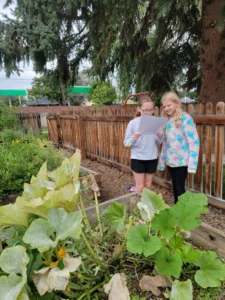 At the Primary level, students are introduced to waste sorting in the classroom and learn about commercial food composting. In the fall, students are introduced to seed saving using dried flower seed heads and dried beans. Students help collect and clean the seeds which eventually end up in the school’s seed library. In the spring, students plant seeds in reused plastic seed starting material (mainly pots and seed flats) as well as experiment with non-plastic seed starting materials, such as making pots out of newspaper.
At the Primary level, students are introduced to waste sorting in the classroom and learn about commercial food composting. In the fall, students are introduced to seed saving using dried flower seed heads and dried beans. Students help collect and clean the seeds which eventually end up in the school’s seed library. In the spring, students plant seeds in reused plastic seed starting material (mainly pots and seed flats) as well as experiment with non-plastic seed starting materials, such as making pots out of newspaper.
Lower Elementary students continue waste sorting in their classrooms and take a leadership role by participating in Green Team and worm composting. Worm castings are collected, bagged, and are sold at our annual May Seedling Sale as a soil amendment. Every spring, Lower Elementary students hatch fertilized chicken eggs in their classroom. Students learn how to candle eggs, have the opportunity to watch chicks hatch, and take care of the newly hatched chicks for the first two weeks of life. Upper Elementary runs two hydroponic (soil-free) tower gardens in an area adjacent to their classrooms. Students learn about the challenges and impact of soil gardening and benefits of hydroponic gardening and other innovative methods on a national and international level. Students seed, maintain, harvest, and decide how to use their harvest. Daily maintenance includes monitoring nutrient and pH levels of the nutrient water and making daily checks for pests. At least once a year, students have a salad making class in which they harvest and eat all the greens they have grown.
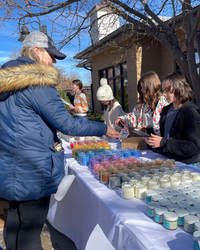 Middle School plays a key role in maintaining sustainability projects and procedures. They have several elective and occupation classes that focus on local and world-wide sustainability. Urban Farm students are responsible for seeding, watering, maintaining, and harvesting five raised soil beds, and they assist in running the vertical farm. Harvested produce is used for various programs and events all year, such as the annual farm-to-table dinner. A portion of the harvest is donated to local organizations.
Middle School plays a key role in maintaining sustainability projects and procedures. They have several elective and occupation classes that focus on local and world-wide sustainability. Urban Farm students are responsible for seeding, watering, maintaining, and harvesting five raised soil beds, and they assist in running the vertical farm. Harvested produce is used for various programs and events all year, such as the annual farm-to-table dinner. A portion of the harvest is donated to local organizations.
The Middle School classes harvest and dry herbs and flowers from the five raised beds. These dried herbs and flowers are used in making lip balms, hand salves, and bath salts. Products are sold at Maria’s Market (handcrafted goods sold to the community) sales. Proceeds from these sales are used to fund middle school trips. Additionally, Middle School students are responsible for maintaining the school’s seed library, which is housed in a repurposed card catalog system in the library.
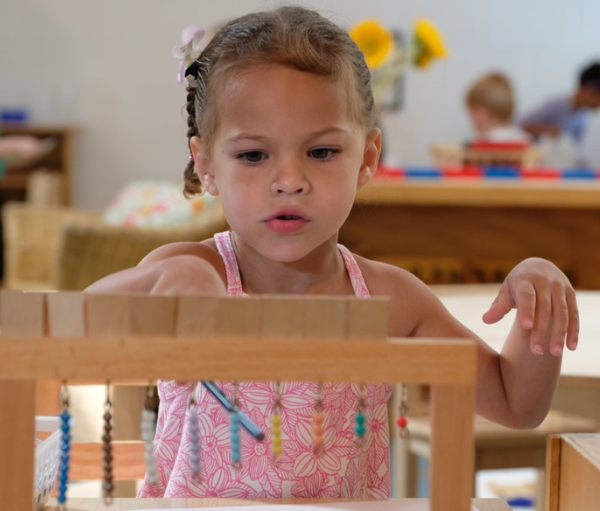
Justin Boyle
Middle School Math Teacher
Dr. Montessori created her math curriculum based on Pascal’s theories. Both believed in the concept of a “mathematical mind.” Pascal believed the term applied to adults, and Montessori believed it also applied to children. The mathematical mind tends to estimate, quantify, see identity, similarity, difference, and patterns, create order and sequence, and control error. The Math program is mindfully organized to be progressive and successive.
In toddler and primary, sensorial materials aim to refine senses, stimulate cognitive development, establish order, and discover learning differences. By isolating particular qualities, sensorial materials facilitate the goal of refinement. These materials are presented to engage children with hands-on lessons, using concrete manipulative materials with a control of error, allowing them to become auto-didactic learners. The sensorial materials provide the basis for mathematical concepts into elementary years.
In lower and upper elementary, students continue working with concrete, tactile materials and progress into abstract processes and computations. This progression allows the child to develop a deep understanding of mathematical concepts, rooted in sense, touching and manipulating of materials. This forms a basis for abstract thought about quantity, symbol, and the four basic operations. These concepts are solidified by using materials, as well as graphing, fractions, telling time, counting money, and memorization of math facts.
As students progress into Middle School, the experience more in-depth discovery of math concepts through project-based learning and collaborative work that is often based on the student’s individual interests and needs. Student mastery is determined through a combination of assessment, project work, self-correction, and teacher observation. Some Montessori materials reinforce mathematical concepts and provide a familiar tool if students desire refresher lessons, but most students are ready for entirely abstract work.
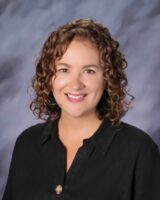
Mary Broeckling
Toddler Teacher
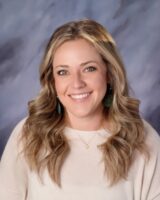
Erin Murphy
Toddler Teacher
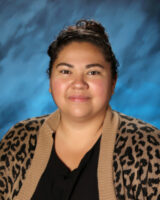
Valene Rodriguez
Toddler Teacher
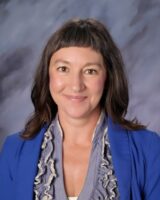
Kelly Elio
Primary Teacher
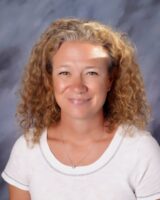
Christina Graham
Primary Teacher
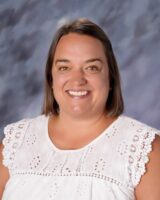
Erin Hardin
Primary Teacher
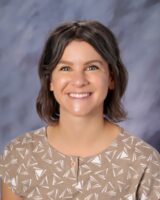
Emily Kline
Primary Teacher
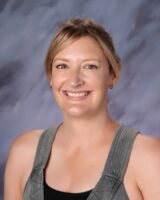
Megan Korell
Primary Teacher
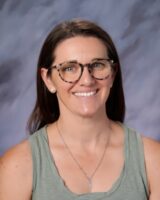
Lauren McEachron
Primary Teacher
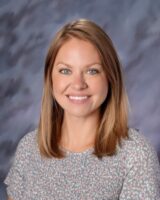
Annie Springer
Director of Elementary Education
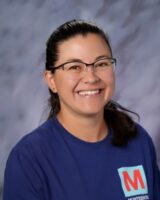
Amanda DeGeyter
Lower Elementary Teacher
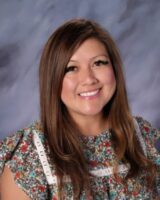
Leana Kerr
Lower Elementary Teacher
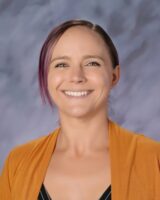
Jacey Lewnerman
Lower Elementary Teacher
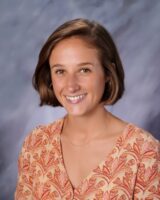
Kelsey Miller
Lower Elementary Teacher
Kelsey Miller, Lower Elementary Teacher, joined MSD in 2021. Kelsey has a BA in Elementary Education and Environmental Studies from Saint Michael’s College in Vermont and her Montessori certification from MECR. She has previously taught at Montessori schools in Alma and Breckenridge and has had immense experience working with children in a variety of settings, including students with varied learning and physical differences. Email Kelsey at kmiller@msd-co.org.
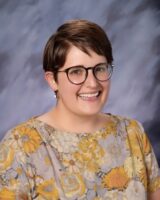
Lauren Moler
Lower Elementary Teacher
Lauren Moler, Lower Elementary Teacher, joined MSD in 2022. Lauren, a former Montessori student herself, completed her Elementary Montessori training at MECR. She graduated from the University of Texas at Austin with degrees in Marketing and English. She is thrilled to be a member of Team MSD, bringing with her a passion for supporting students with emotional regulation, empathy, and grounding. She is also a seamstress, needle worker, and knitter and loves to share her skills with her students in the classroom. Lauren’s confidence in lesson delivery, her accepting and kind nature toward others, and her hunger for knowledge are qualities that add value to our MSD community. Email Lauren at lmoler@msd-co.org.
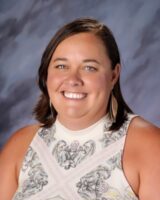
Candice Rudasill
Lower Elementary Teacher
Candice Rudasill, Lower Elementary Teacher, officially joined the MSD staff in 2020 but served the MSD community for several years prior in various roles, including classroom volunteer, substitute, and Auction Co-Chair. Candice earned her Bachelor of Science and Bachelor of Arts in Organizational Leadership and Zoology from Miami University, and also studied Elementary Education at University of Colorado at Denver. She lives the values of Montessori through her deep connection with students and her masterful delivery of lessons aimed at both the head and the heart. She received her Lower Elementary certification from the Montessori Education Center of the Rockies (MECR). Email Candice at crudasill@msd-co.org.
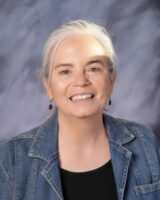
Lauren McFall
Upper Elementary Intern
Lauren McFall, Upper Elementary Intern, joined MSD in 2022. Lauren comes to us with 28 years of experience in elementary and middle school classrooms, including work in private, charter, public, and gifted and talented schools. Lauren has found her way to Montessori and has completed her Lower Elementary Montessori certification through CGMS (The Center for Guided Montessori Studies). Lauren is eager to join our community during her Upper Elementary internship, which she will complete through CGMS. Email Lauren at lmcfall@msd-co.org.
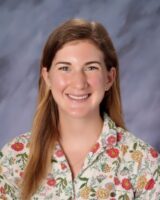
Samantha Morgan
Upper Elementary Teacher
Samantha Morgan, Upper Elementary Teacher, joined MSD in 2021. Samantha came to us from the Montessori School of Evergreen, where she spent seven years working in both Lower and Upper Elementary classrooms. In addition to her teaching experience, she has also worked for several national and overseas organizations with sustainability, outdoor education, and service as their focus. Samantha has a BS in Cell and Molecular Biology from Appalachian State University, NC, as well as a MS in Biomimicry from Arizona State University. Email Samantha at smorgan@msd-co.org.
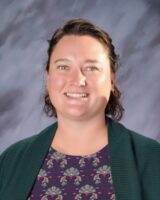
Kate Powell
Upper Elementary Teacher
Kate Powell, Upper Elementary Teacher, originally came to MSD in 2016 and taught in the Lower Elementary program. She rejoined MSD in 2021 after spending three years at Free Horizon Montessori leading an Upper Elementary classroom. Kate has a BS in Chemical Engineering from Tulane University and previous work experience in the oil and gas industry. She earned her Lower and Upper Elementary Montessori certification from Gulf Coast Montessori Teacher Education Center in Houston and has since become an instructor for their teacher training program. Email Kate at kpowell@msd-co.org.
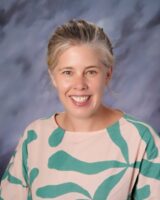
Christine Putnam
Upper Elementary Teacher
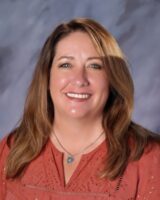
Carrie Ross
Director of Middle School Education and History Teacher
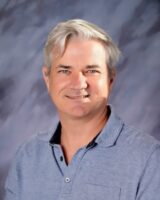
Justin Boyle
Middle School Math Teacher
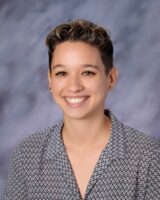
Jillian Linares
Middle School Language Arts Teacher
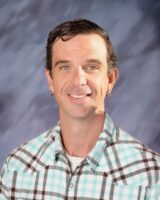
Joel Richardson
Middle School Science Teacher
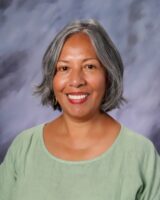
Magdalena Ortega Neri
Spanish Teacher (Upper Elementary through Middle School)
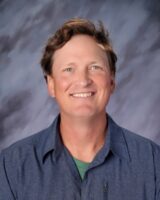
Chris Bangs
Physical Education Teacher
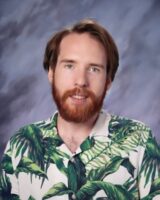
Serge Fedorowsky
Librarian
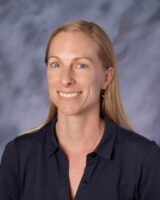
Lexi Fickenscher
Handcraft Teacher
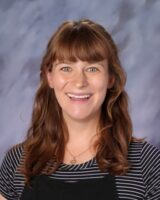
Laura Goodman
Music and Theater Teacher
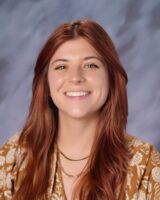
Elaina Pignolet
Art Teacher
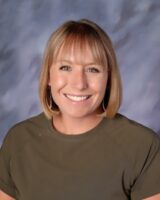
Molly Tronco
Spanish Teacher (Toddler through Lower Elementary)

Lexi Fickenscher
Handcraft Teacher
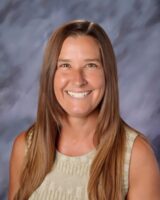
Ashley Lapham
Urban Farm Manager
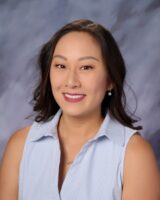
Joo Ree Chu
Director of Student Support
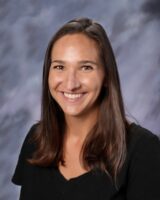
Dr. Tori Virlee
School Psychologist
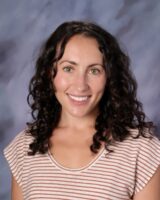
Chelsea McKinlay
Learning Specialist
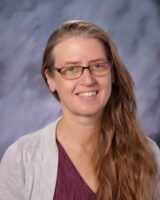
Janel Wade
Learning Specialist
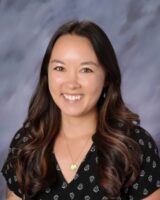
Marissa McCullough
Diversity, Equity, Inclusion, and Belonging (DEIB) Consultant




